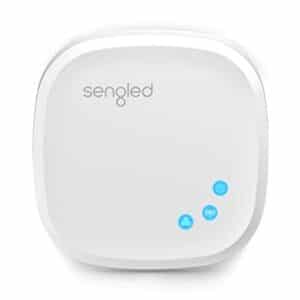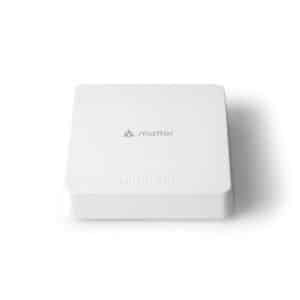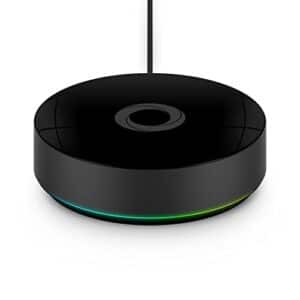How Many Smart Home Hubs Do I Need?
Key Takeaways
- The number of smart home hubs needed largely depends on the number of connected devices and their manufacturers.
- Smart home hubs act as a central control system, allowing you to connect and manage various smart devices in your home.
- Before deciding on the number of hubs, it is crucial to assess the compatibility of your smart devices, including device compatibility, wireless technologies supported, and manufacturer compatibility.
When it comes to building a smart home, one common question that arises is how many smart home hubs are necessary to manage all the connected devices effectively. With the increasing popularity of smart home technology, there are numerous options available in the market. In this article, we will explore the different factors to consider when determining the number of smart home hubs needed and provide insights into the best smart home hubs for multiple devices.
Understanding Smart Home Hubs
Smart home hubs act as a central control system, allowing you to connect and manage various smart devices in your home. These hubs serve as a bridge between different protocols, enabling seamless communication between devices that use different wireless technologies such as Wi-Fi, Bluetooth, Zigbee, Z-Wave, and more.
Factors to Consider
The number of smart home hubs needed largely depends on the number of connected devices and their manufacturers. Here are some factors to consider:
Device Compatibility
Before deciding on the number of hubs, it is crucial to assess the compatibility of your smart devices. Some devices may only work with specific hubs or protocols. Therefore, it is essential to choose a hub that supports the wireless technologies used by your devices.
Wireless Technologies Supported
Smart home hubs vary in terms of the wireless technologies they support. For instance, some hubs support Wi-Fi, Bluetooth, Zigbee, Z-Wave, and Thread, while others may have limited connectivity options. It is important to choose a hub that supports the wireless technologies used by your devices to ensure seamless integration.
Manufacturer Compatibility
Manufacturers often develop their own ecosystems, and devices from different manufacturers may not work together seamlessly. In such cases, a smart home hub can act as a unifying platform, allowing you to control devices from various manufacturers through a single interface.
Number of Connected Devices
The more smart devices you have in your home, the more likely you will need multiple hubs. If you only have a few devices from the same manufacturer, it may be possible to manage them without a hub. However, if you have multiple devices from different manufacturers, a hub can simplify the management process by providing a central control point.
Complexity of Automation
If you plan to automate various tasks and create complex routines in your smart home, having multiple hubs can be beneficial. Different hubs may offer unique features and integrations that can enhance the automation capabilities of your smart home.
Recommended Smart Home Hubs
Based on the information gathered from reputable sources, here are some of the best smart home hubs for multiple devices:
- Amazon Echo (4th gen)
- Aeotec Smart Home Hub
- Amazon Echo Dot with Clock
- Apple HomePod (2nd generation)
- Google Nest Hub Max
- Hubitat Elevation
- Aeotec Smart Home Hub
- Amazon Echo
- Apple HomePod Mini
- Google Nest Hub Max
- Amazon Alexa Echo Show 8
- Apple HomePod Mini
- Google 7-Inch Nest Hub
- Samsung SmartThings Station Hub (without Power Adapter)
These hubs offer a range of connectivity options and compatibility with various smart devices, making them suitable choices for managing multiple devices.
Conclusion
The number of smart home hubs needed depends on factors such as device compatibility, wireless technologies supported, manufacturer compatibility, the number of connected devices, and the complexity of automation. Assessing these factors and choosing the right smart home hubs can simplify the management of multiple devices and enhance the overall smart home experience.
Related Websites:
FAQs:
Q: What is a smart home hub and what role does it play in a smart home setup?
A smart home hub is a central device that connects and controls various smart devices in your home. It acts as the brain of your smart home setup, allowing you to automate and control different aspects of your home, such as lighting, security, and temperature, from a single interface.
Q: What factors should I consider when choosing a smart home hub?
There are a few factors to consider when choosing a smart home hub. Firstly, analyze the size and layout of your home to determine the coverage area. Secondly, check the compatibility of smart devices with different hub options and assess the number of devices you plan to integrate. Lastly, evaluate the level of automation and customization you desire and understand the capabilities of different smart home hubs in terms of automation.
Q: What are the types of smart home hubs available?
There are two main types of smart home hubs. Centralized smart home hubs provide a centralized control system for all devices, offering features like unified control and automation. Individual smart home hubs cater to specific functions, such as security or entertainment, and are suitable for scenarios where specialized control is needed.
Q: How many smart home hubs do I need?
The number of smart home hubs you need depends on various factors. Assess the size and complexity of your smart home system, consider the compatibility of smart devices with different hub options, and weigh the pros and cons of a centralized hub versus individual hubs. Carefully evaluate your needs to determine the ideal number of smart home hubs for your setup.
Q: Why is it important to carefully evaluate your needs before deciding on the number of smart home hubs needed?
Carefully evaluating your needs before deciding on the number of smart home hubs is crucial to ensure optimal functionality and convenience. By understanding your home layout, device compatibility, and desired level of automation, you can make an informed decision that aligns with your specific requirements, resulting in a more efficient and enjoyable smart home experience.






